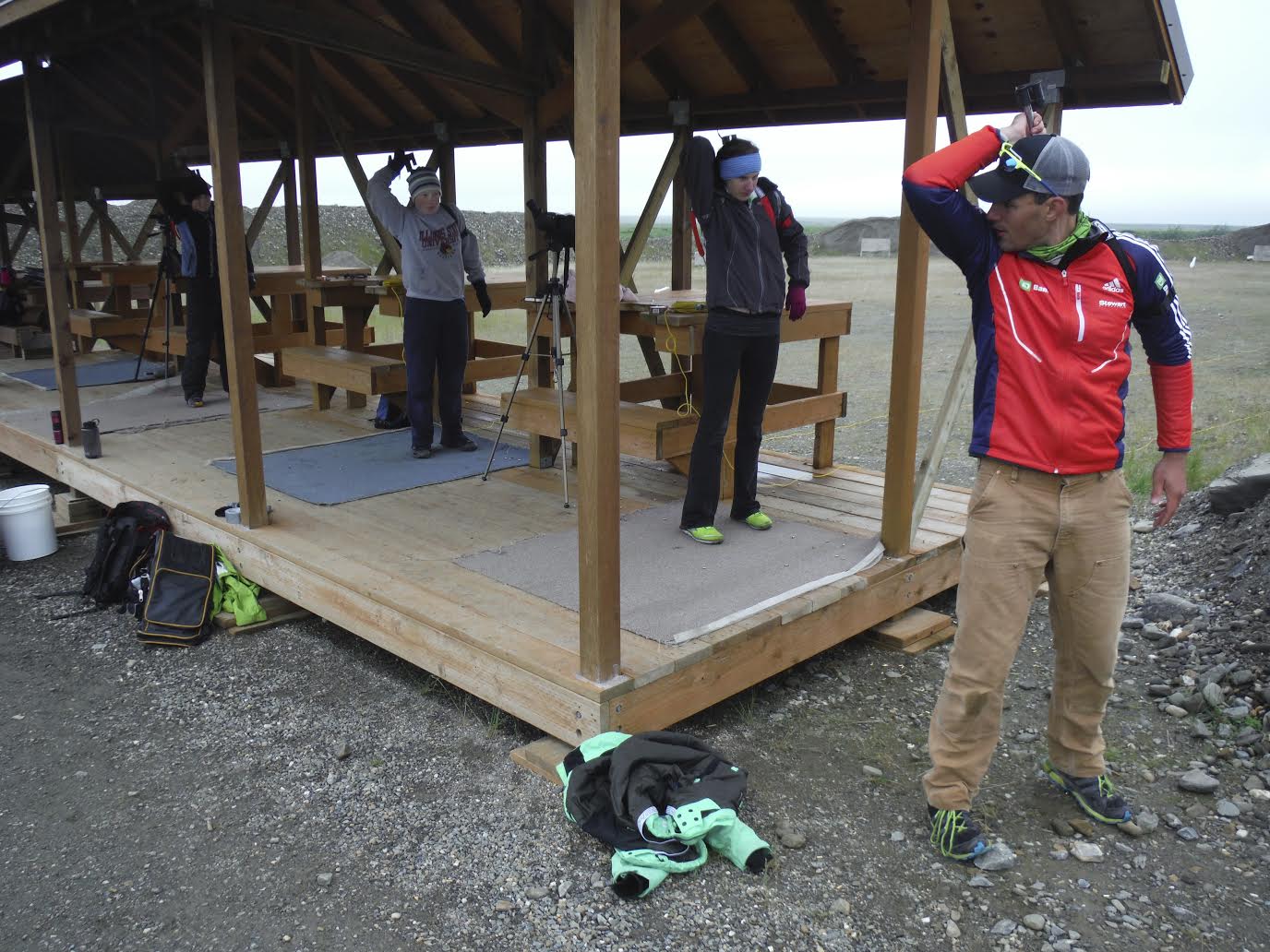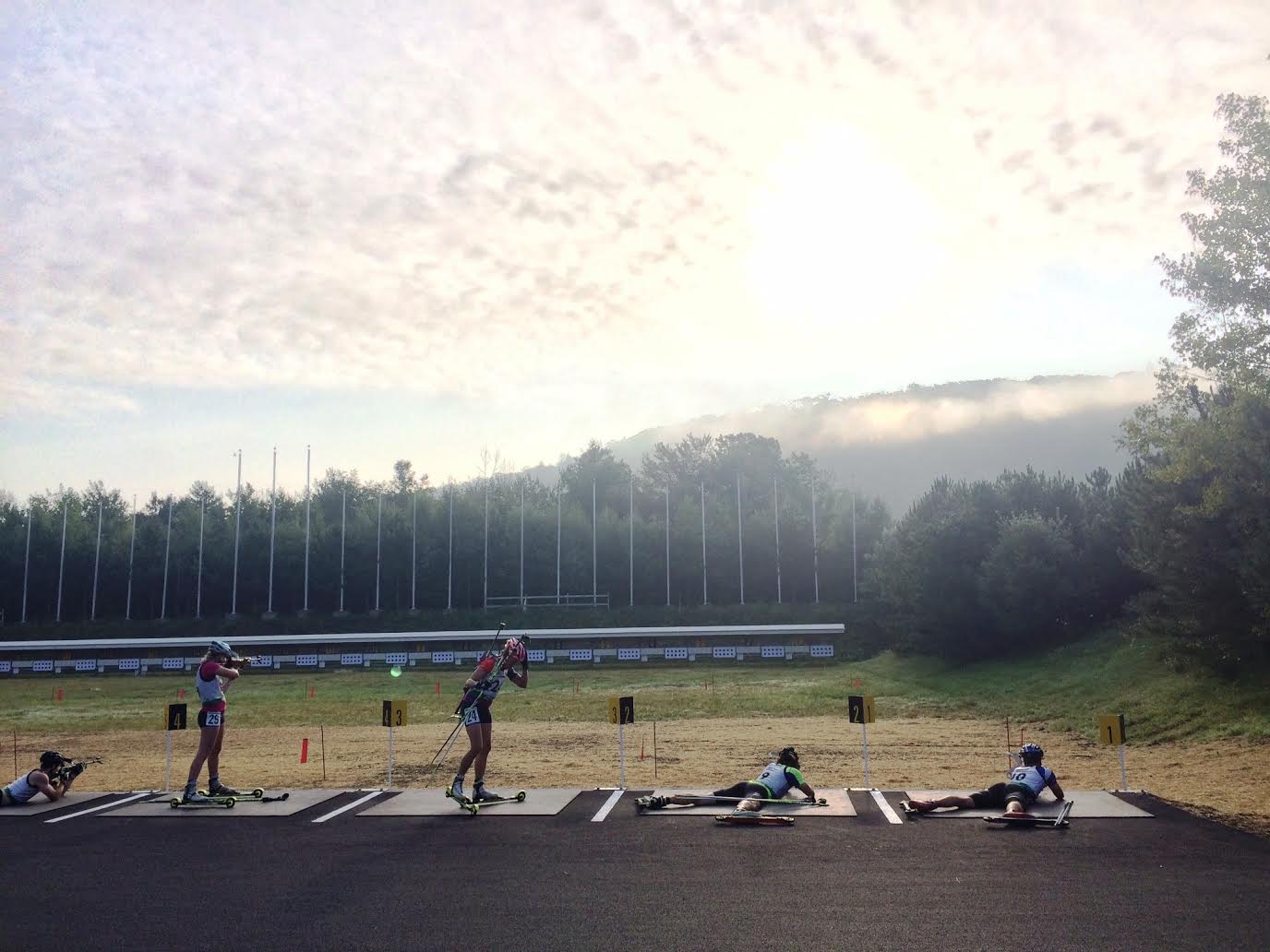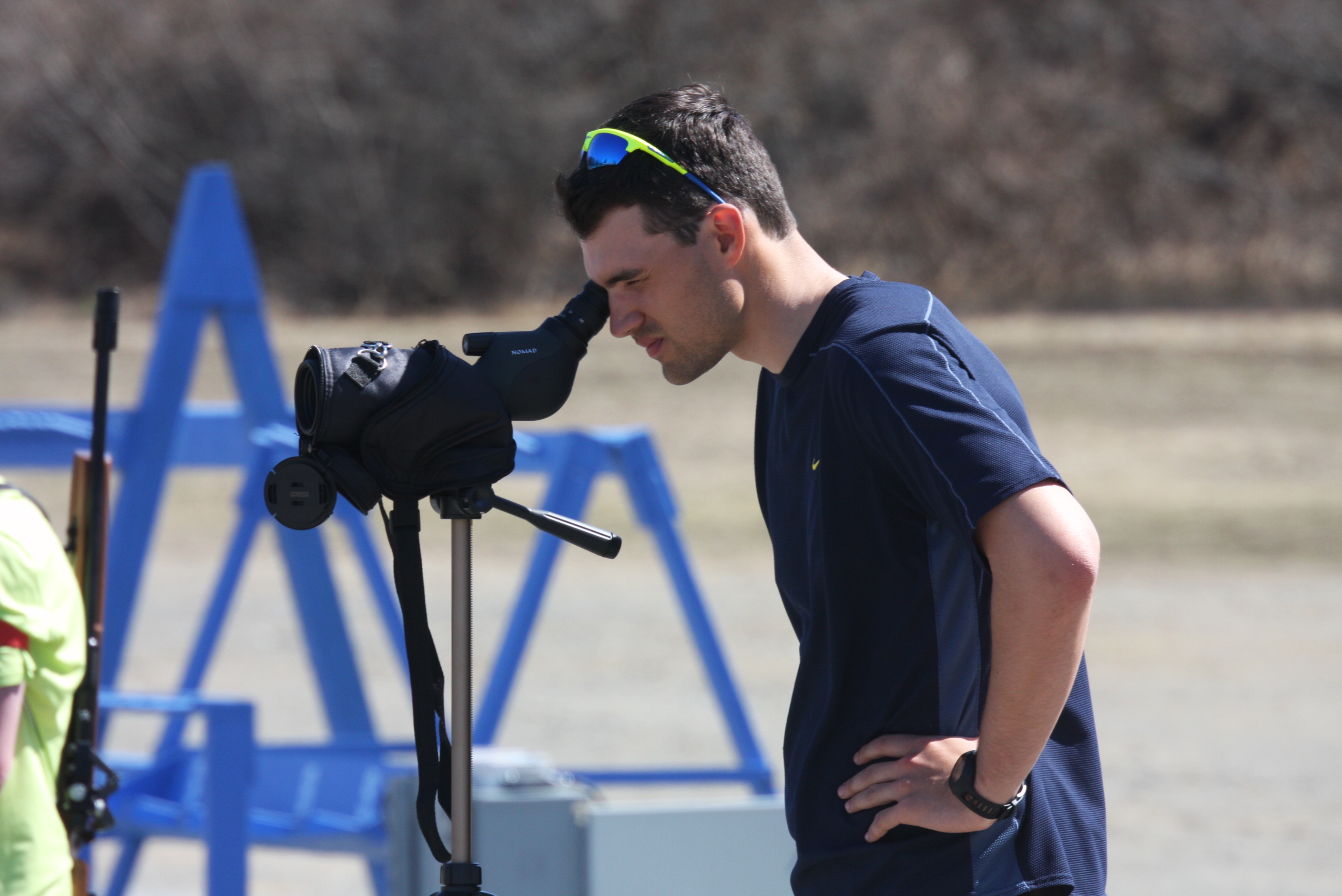
Sam Dougherty (appropriate) coaching a women’ biathlon clinic in Nome, Alaska. He now has a coaching internship with the U.S. national team. (Photo: Sam Dougherty)
In current many years the U.S. Biathlon Association gives a coaching internship with the nationwide crew. It can be a springboard for a occupation in nordic sport: last year’s intern, Erik Lewish, is now an assistant coach with the team.
This 12 months the spot went to Sam Dougherty, a former junior biathlete who just lately graduated from Montana State University.
In the prolonged run, Dougherty needs to have a profession in management and administration. He studies business at MSU. But for now, he needs to take that technique with biathlon, the sport he has been passionate about for so lengthy.
“I want to immerse myself in each facet of programming at every single level across the nation in buy to have a non-condescending finger on the pulse of biathlon,” Dougherty wrote in an e mail interview. “In company school I was surrounded by extremely gifted men and women who are hell-bent on modifying the vocabulary of their area of curiosity. I want to be that kind of person for biathlon and the better American nordic local community.”

The view from the assortment at the North American Rollerski Cup race this summer time in Jericho, Vermont. (Photograph: Sam Dougherty)
In the meantime, he based mostly himself in Lake Placid with the nationwide group and has been concerned in each and every aspect of instruction. Dougherty stated that he had filled two notebooks currently with coaching notes.
That’s amazing taking into consideration Dougherty’s prior involvement in coaching and management. though he’s 22 many years outdated, he has been coaching for a although – partly since the biathlon neighborhood is tiny and coaches and assortment help are always essential, even from the present pool of athletes.
So Dougherty has worked with elementary schoolers, higher shoolers, and masters athletes. That contains as a village coaching director for NANA Nordic (now named Skiku) and as a system head and coach for 75 biathletes at the Nordic Skiing Association of Anchorage.
And he earned much more useful encounter a handful of many years in the past when he attempted to start off up a education group and crew for elite junior biathletes who were attending MSU. 4 or five severe university-age athletes gave it in the past, but the energy came apart after most left the sport.
Right after competing as a skier for the initial component of his time in Bozeman, Dougherty transitioned to managing the MSU Ski Group his senior yr. That meant finding out underneath the guidance of Kristina Trygstad-Saari, who coached the team last year, and Tim Whiton, who was her assistant.
Right here’s how Dougherty aims to get the most out of his internship knowledge, while also providing the mot to U.S. Biathlon’s athletes and staff. His organizational and managerial philosophy, as effectively as his background as an athlete, are why he was picked for the position. “I try out to remind myself of a edition of this every single day,” Dougherty wrote in an electronic mail.
Communicate: Know the plan, describe the plan, execute the strategy.
Be a Sponge: Never quit understanding and absorbing. Be a derivative of your mentors
Mold my Type A’ la Carte: Take what attributes I like from all of my mentors, and develop a model coach from those attributes.
Respect the Totem Pole: I deserve to be at the bottom. How do I make myself invaluable?
Be The Greatest at What You Do, then Do It Better: Is “Business as Usual” the most efficient and price-successful?
Constantly Feel 4 Weeks Ahead: Exactly where are we going and why?
Control What You Can, Respect What You Can not: Make sure athletes are in a location that they feel effectively but even now ask for performance. In return request for self-inspiration.
“I’ve accomplished my very best to receive as a lot formal training in coaching as possible,” Dougherty explained. “US Biathlon has a tier-level coaching certification program, considerably along the lines of USSA. I acquired my Degree 1 coaching certification in 2012… I also took a semester-long sports coaching class at Montana State, which gave me a basic understanding of exercise physiology, nutrition, planning, and mediation.”
Numerous of the nationwide crew personnel he’s now functioning with come from European countries which have a much more formalized coaching training system, like Sweden, Finland, and Germany. He’s hoping to soak up their understanding.
“I certainly see a distinction in my design of coaching in contrast to the National Staff coaches [from] Europe,” he wrote. “A good deal of it is in their self-confidence and expertise, and it’s something I hope to emulate by the time I’m their age. I consider a far more formal training in coaching can put together a particular person for good results a lot sooner in their occupation and get a good deal of the guesswork out of their approach for the first couple of many years.”
With Jonne Kahkonen and Jean Paquet as his primary mentors, Dougherty has been doing work primarily with the women’s “A” crew, although he also functions with other athletes. He does no matter what is necessary, which encompasses a wide variety of duties.
“I’m an outstanding van driver,” he wrote.
That sounds like a joke about the typical internship knowledge. Nevertheless, Dougherty is not just relegated to managerial duties, he also helps out on the selection and is studying far more about physiology, which he considers his greatest weakness as a coach at the second.
“I am responsible for timing, scoring, and recording each shot our athletes make,” Dougherty explained. “I then place the details into a database that our coaches and athletes can analyze for progress and trends. Every single round our athletes fire has a purpose. I truly feel that’s unique to this staff.”

Searching through the scope is anything Dougherty has been carrying out lots this summertime. (Photograph: Sam Dougherty)
That signifies managing the shots for athletes like Planet Championships medalist Tim Burke, Planet Cup podium finisher Lowell Bailey, Globe Junior Champion Sean Doherty, and American recordbreaker Susan Dunklee, and the rest of the team’s large names.
“I’m still really star struck when I search down the scope for these guys,” Dougherty wrote. “I even now have posters of them on my wall in Alaska. The greatest unknown for me going in was how I could aid in the development of athletes 10 years my senior that have accomplished much more good results than I could’ve ever imagined in my very own biathlon profession.”
But he is getting an result. Kahkonen wrote that Dougherty has speedily earned the respect of the athletes with his difficult perform.
“Sam stood out [from other applicants] with his overall method to it and his former career as a biathlete,” Kakkonen wrote in an e mail. “Now having Sam and operating with him am I actually happy that we selected him. He has a very great, calm approach to coaching and has a extremely open mind to hold learning as we go.
Sam has been receiving along truly properly both with the staff and much more importantly with the athletes he has the respect via his actions at education.”
As the summer season has worn on, Dougherty has been trusted with much more duty.
“More not too long ago I have been offered the chance to work one particular-on-1 with the athletes, and even run some of the education on my personal,” he explained.
And when far more bodies are needed, Dougherty relies on his personal experience as a best-30 Globe Juniors finisher many years in the past.
“It’s also nice to know I’m capable of jumping into a shooting drill each and every so often,” he wrote.
He’s now looking forward to the potential. The internship will end on November one.
“I’ve been in get in touch with with a couple of plans that could have a area for me following my internship is done, and I’m nonetheless seeking to see what is out there for biathlon and Nordic management and coaching,” he wrote. “Wherever I determine to go I hope to positively effect the all round athlete encounter… As an athlete I needed to be the very best. Once I started out coaching, I recognized that it was just as rewarding for me, and possibly all along I just desired the group and the program to be the ideal.”
And though coaching national-crew athletes might seem a bit diverse than some of the other choices open to a youthful coach, Dougherty has learned plenty that he hopes to take to yet another task.
“At the national crew level, athletes are a lot more concerned in the planning and execution of their individual coaching strategy,” he explained. “It’s significantly more collaborative. At this degree it’s more about removing obstacles for the athletes than enforcing a universal instruction strategy. It’s some thing I would incorporate if I coached a collegiate team in the potential.”